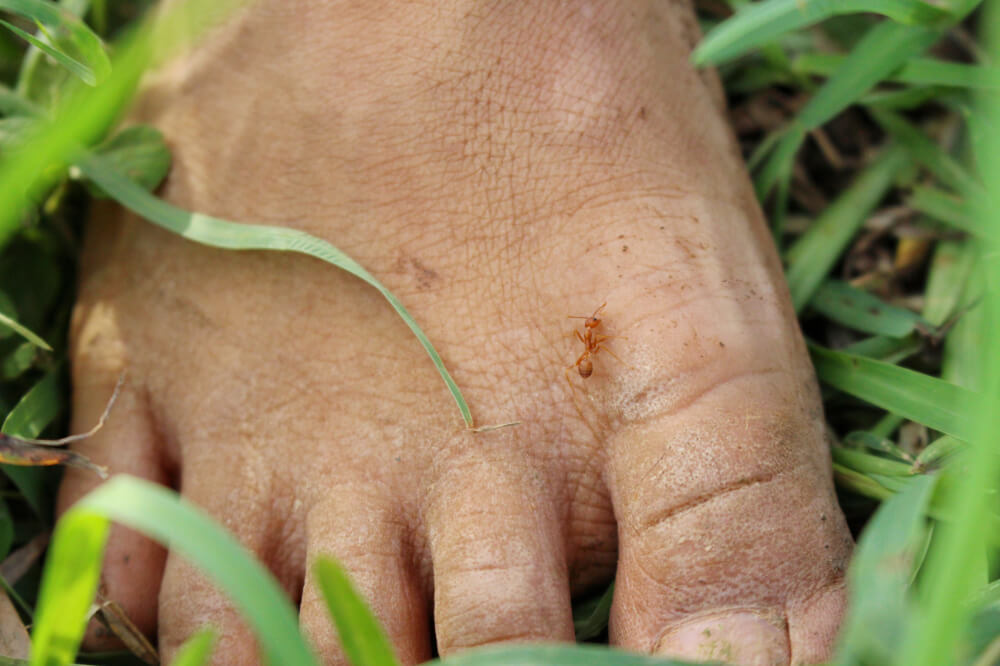
It’s only natural to want to explore the outdoors when the sun is out and the weather is warm. Spending time outside can be very healthy, but it can also pose a danger if you are allergic to biting and stinging ants.
When insects like ants bite or sting, they release a chemical called formic acid into the skin. While this chemical is not life-threatening on its own, it irritates the bite site and can cause people with an allergy to experience moderate, severe, or even life-threatening symptoms.
Luckily, there are ways to protect yourself against ants outside. The following are bite symptoms to look out for and tips on how to avoid ant interactions altogether.
Signs of an Ant Bite Allergy
People with allergies to ant bites will experience more than an average reaction.
Standard Ant-Bite Reactions
It’s normal for a person to experience the following symptoms if bitten by an ant:
- Instant but short-lived pinching sensation
- Mild but noticeable redness and swelling
- Mild itching sensations
There are more intense symptoms if stung by a stinging ant:
- Painful burning
- Moderate to severe redness or swelling
- Moderate to severe itching sensations
- Bump that can transition into a small, puss-filled blister
Allergic Ant-Bite Reactions
If someone is allergic to ants, their immune system will react to create symptoms like:
- Partial- or full-body hives and swelling
- Partial- or full-body itchiness
- Stomach pain that can also include nausea and vomiting
- Breathing difficulties
- Feelings of dizziness or lightheadedness
In rare but severe cases, allergy patients can experience anaphylaxis, so be sure to either visit the ER or call 911 if an ant bite or sting causes an allergic reaction.
How to Protect Against Ants While Outside
Allergy patients and non-allergy patients alike can benefit from avoiding ants in the yard, on sidewalks, on trails, or anywhere else they may be found outdoors.
Cover your skin
Wear close-toed shoes, high socks, and long pants to protect your legs from ant exposure. If you are gardening or working with your hands, be sure to wear gloves.
Be aware of your surroundings
Take note of any ant mounds or hills nearby. Also, look for lines of ants or areas of infestation.
Use insect repellant
Repellant is for more than mosquitoes. It repels ants as well, keeping them from being able to bite or sting.
Ants may be tiny, but their bites can cause significant reactions in allergy patients. If you or a loved one struggles with ant or stinging insect bites, talk to the team at Langford Allergy. We can conduct accurate allergy testing and provide beneficial treatment plans based on our results. Schedule an allergy consultation with us today: 478-787-4728
